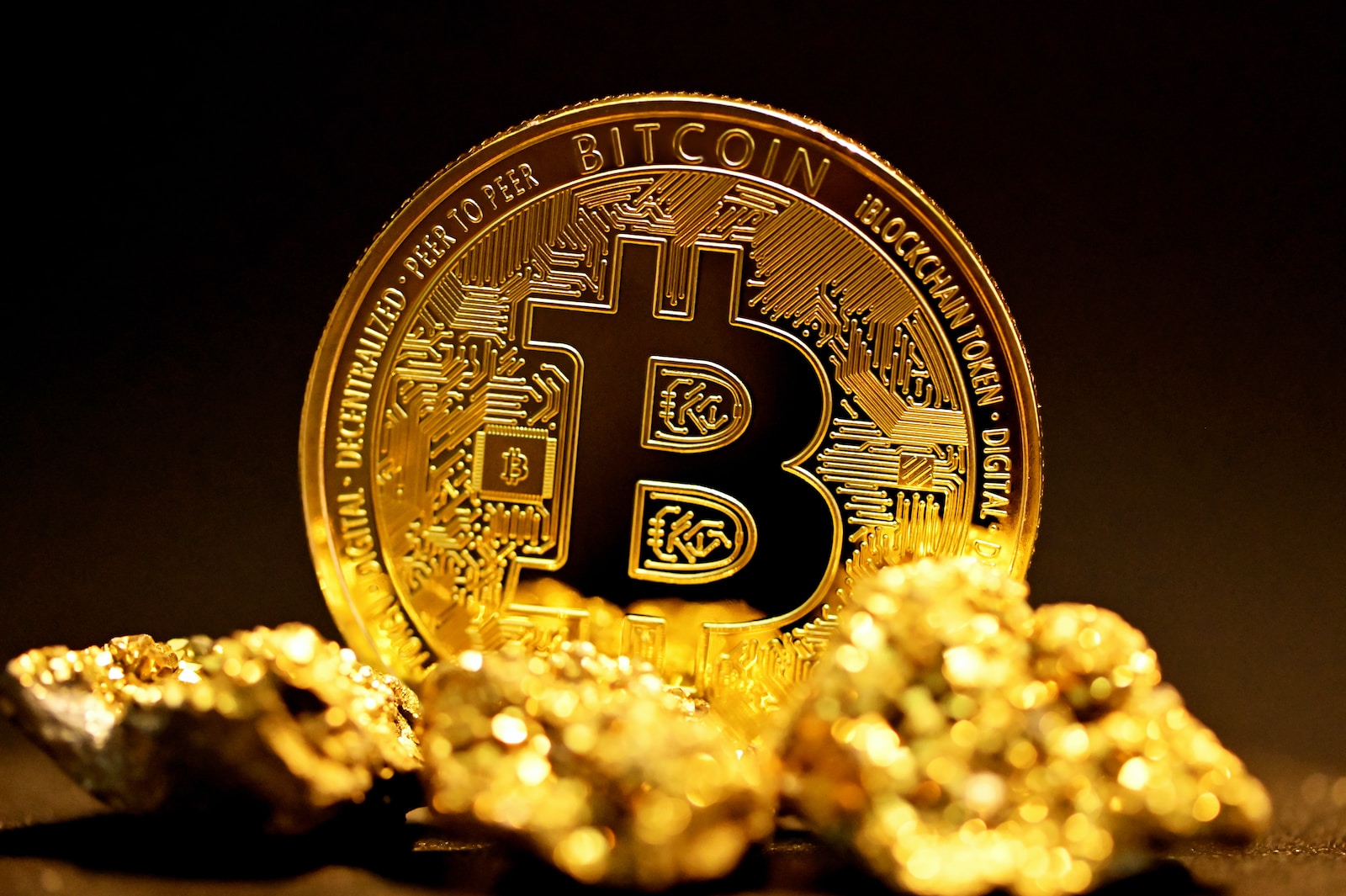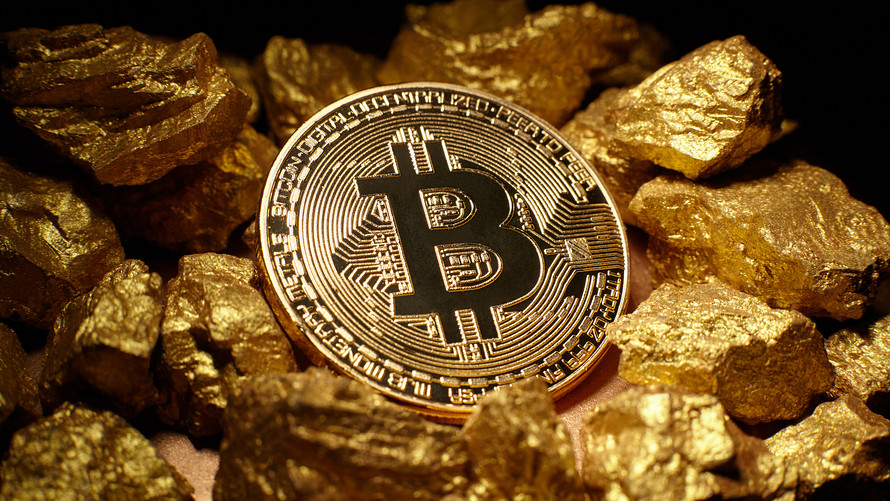In this modern era, investment options have vastly diversified beyond traditional assets, providing a myriad of choices for investors. Two intriguing and quite different prospects are Bitcoin mining and gold mining. This blog post aims to delve into the intricacies of both these ventures, comparing them on various grounds and helping you discern which one aligns better with your investment goals.
Introduction
What is Bitcoin Mining?
Bitcoin mining refers to the process of creating new Bitcoins by verifying transactions on the Bitcoin network. The miners use powerful computers to solve complex mathematical problems. When a problem is solved, the miner gets rewarded with Bitcoin. This digital process not only creates new Bitcoins but also ensures the security and integrity of the Bitcoin network by preventing double-spending.
What is Gold Mining?
Gold mining, on the other hand, is the physical process of extracting gold from the Earth’s crust. Miners dig deep into the earth, blast rocks, and sift through the debris to locate and retrieve gold. Once found, the gold is refined and sold in the market. Despite being a centuries-old practice, gold mining remains a viable and lucrative venture.
Overview of Bitcoin vs Gold as Investments
Both Bitcoin and gold mining bear their unique pros and cons as investments. Bitcoin mining offers potential high returns but comes with high risks due to the volatility of the cryptocurrency market. Gold mining, while comparatively stable, involves significant upfront costs and environmental concerns. The following sections will scrutinize these aspects in greater detail.
Understanding Bitcoin Mining
How Bitcoin Mining Works
Bitcoin mining begins with powerful computers called “rigs” that run software to solve complex mathematical puzzles. These puzzles are a part of the Bitcoin algorithm, and their solution helps verify transactions on the Bitcoin network, effectively adding them to the blockchain ledger.
The Process of Bitcoin Mining
Setting Up a Bitcoin Mining Operation
To start mining Bitcoin, one needs a high-performance computer, Bitcoin mining software, and a digital wallet to store the mined Bitcoins. The computer’s processing power is used to solve the mathematical problems, and the solutions are submitted to the Bitcoin network. If a solution is accepted, it’s added to the blockchain, and the miner is rewarded with Bitcoin.
Understanding Block Rewards and Transaction Fees
Miners receive two types of incentives for their efforts: block rewards and transaction fees. A block reward is a fixed amount of Bitcoins given to a miner when they add a new block of transactions to the blockchain. Transaction fees are small amounts users pay to miners to prioritize their transactions in the blockchain. These combined earnings make up the profitability of Bitcoin mining.
The Profitability of Bitcoin Mining
Bitcoin mining profitability depends on various factors like the cost of electricity, the price of Bitcoin, and the difficulty of mining. High electricity costs can significantly eat into earnings as Bitcoin mining requires substantial computational power. Moreover, as more people mine Bitcoin, the difficulty increases, leading to lower profitability.
Risks and Challenges in Bitcoin Mining
Bitcoin mining carries several risks. The price of Bitcoin is highly volatile, which directly impacts mining profitability. Additionally, the ever-increasing mining difficulty and potential regulatory changes can pose significant challenges for miners.

Understanding Gold Mining
How Gold Mining Works
Gold mining involves the physical extraction of gold from the earth. The process begins with the exploration of potential gold deposits, followed by the mining and refining phases.
The Process of Gold Mining
Locating Gold Deposits
The first step in gold mining is geological exploration to find areas rich in gold. This stage involves conducting surveys and collecting samples to confirm the presence of gold.
Extracting and Refining Gold
Once a gold deposit is located, miners dig or blast to reach the gold. The extracted ore is then processed to separate gold from other minerals. Finally, the gold is refined to remove impurities, resulting in pure gold ready for sale.
The Profitability of Gold Mining
The profitability of gold mining depends on factors like the size of the deposit, the cost of extraction, and the current market price of gold. It’s a high-risk, high-reward venture that requires substantial capital investment.
Risks and Challenges in Gold Mining
Gold mining faces several risks, including market volatility, operational difficulties, and environmental impact. Moreover, political instability and regulatory changes in countries where gold mines are located pose additional challenges.
Comparing Bitcoin Mining and Gold Mining
Investment Costs
Bitcoin mining requires investment in computing hardware, electricity, and cooling systems. On the contrary, gold mining demands significant capital for exploration, extraction, and refining processes.
Potential Returns
Bitcoin mining can offer high returns, especially during crypto-boom periods. Conversely, gold mining returns depend on the quantity and quality of the gold extracted and its market price.
Market Volatility and Risk
Bitcoin is known for its price volatility, which affects mining profitability. Gold prices also fluctuate but are generally considered more stable than Bitcoin.
Environmental Impact
Both Bitcoin mining and gold mining have significant environmental impacts. Bitcoin mining consumes a large amount of electricity, contributing to carbon emissions. Gold mining, meanwhile, leads to land degradation and chemical pollution.
Regulatory Considerations
Both ventures face regulatory risks. While Bitcoin mining operates in a largely unregulated environment, it faces potential crackdowns. Gold mining is subject to strict regulations, which can vary significantly from country to country.

Making the Choice: Bitcoin or Gold?
Factors to Consider
Market Conditions
Investors should consider market conditions before investing in Bitcoin or gold mining. The performance of these investments is highly susceptible to market trends, making timing crucial.
Personal Risk Tolerance
Both investments carry risk. Bitcoin mining is more volatile but can yield high returns, while gold mining is typically more stable but requires significant upfront investment.
Investment Goals
Your investment goals should guide your choice. If you’re seeking quick, potentially high returns, Bitcoin mining may be attractive. But if you prefer a long-term, stable investment, gold mining could be a better fit.
Diversification Strategies
One effective strategy could be to diversify your portfolio by investing inboth Bitcoin and gold mining. This diversification can help balance out the risks and rewards associated with each investment.
Conclusion
Final Thoughts on Bitcoin Mining vs Gold Mining as Investments
The decision between investing in Bitcoin mining or gold mining ultimately boils down to your individual investment goals and risk tolerance. Bitcoin mining may offer higher potential returns, but it comes with significant risks due to market volatility and regulatory uncertainty. On the other hand, gold mining offers more stability but requires substantial initial capital and has its environmental concerns.
Regardless of which path you choose, it’s crucial to conduct thorough research and stay informed about market trends. Diversification could also be an effective strategy to spread risk across different investment typesand mitigate potential losses. Ultimately, the choice between Bitcoin mining and gold mining should be based on careful consideration of market conditions, personal risk tolerance, investment goals, and diversification strategies. It is recommended to consult with a financial advisor or investment professional before making any investment decisions.


